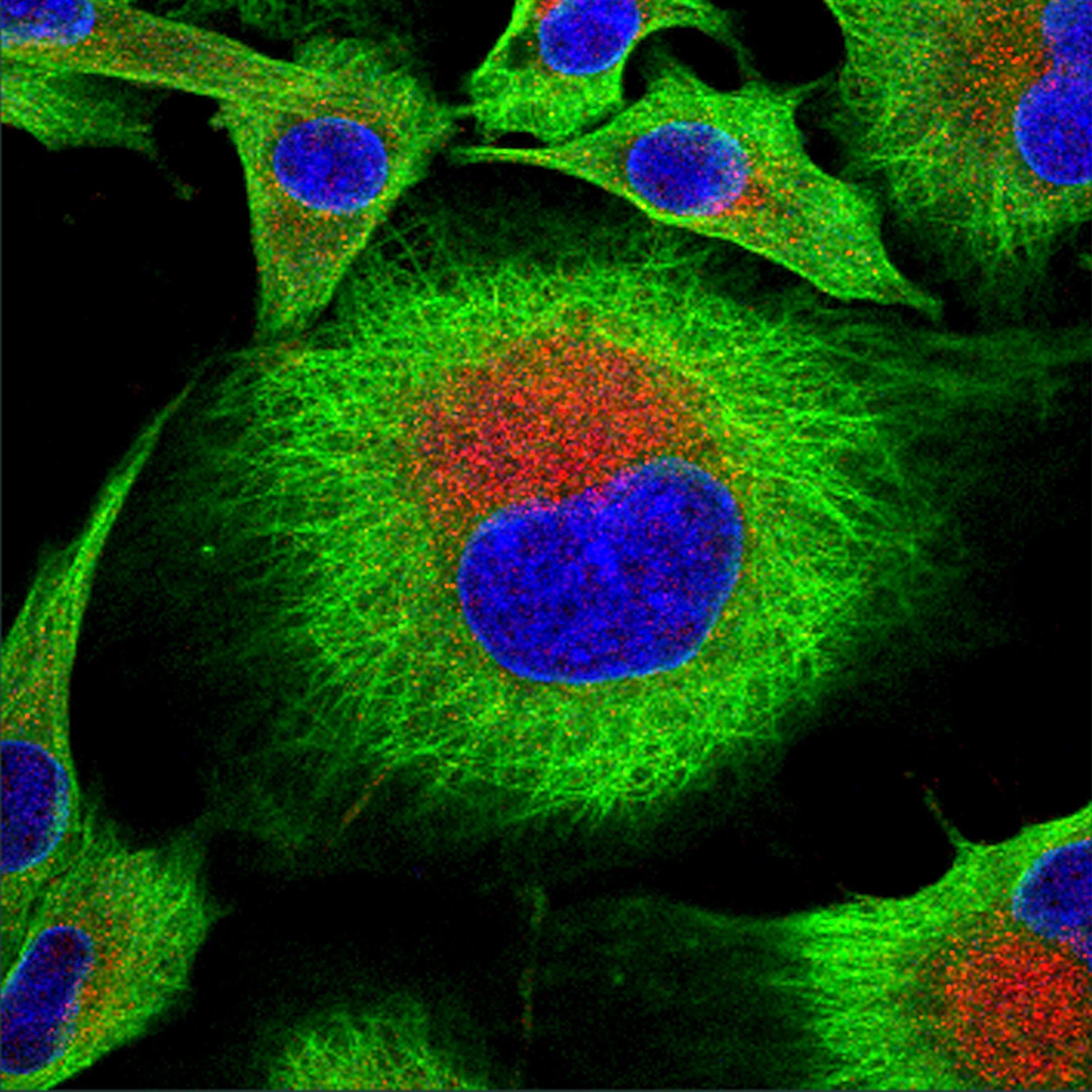Precision engineering for PRRSV resistance in pigs: Macrophages from genome edited pigs lacking CD163 SRCR5 domain are fully resistant to both PRRSV genotypes while maintaining biological function
Porcine Reproductive and Respiratory Syndrome is an endemic infectious disease of pigs, manifesting differently in pigs of different ages but primarily causing late-term abortions and stillbirths in sows and respiratory disease in piglets. The causative agent of the disease is the positive-strand RNA PRRS virus (PRRSV). PRRSV only infects a specific subset of cells of the innate immune system of the monocyte/macrophage lineage. Previous research found that the virus needs a specific receptor, CD163, in order to make its own membrane fuse with the host cell membrane in an uptake vesicle to release the viral genetic information into the cytosol and achieve a successful infection. CD163 has a pearl-on-a-string structure, whereby the pearl/ domain number 5 was found to interact with the virus and allow it to infect a cell. Here we describe how we generated pigs lacking the CD163 subdomain 5 using so-called CRISPR/Cas9 gene editing in zygotes. The pigs were healthy under normal husbandry conditions and other biological functions conducted by the CD163 were found to be intact. We isolated a variety of monocyte and macrophage cells from these pigs and found them to be completely resistant to PRRSV infection.

